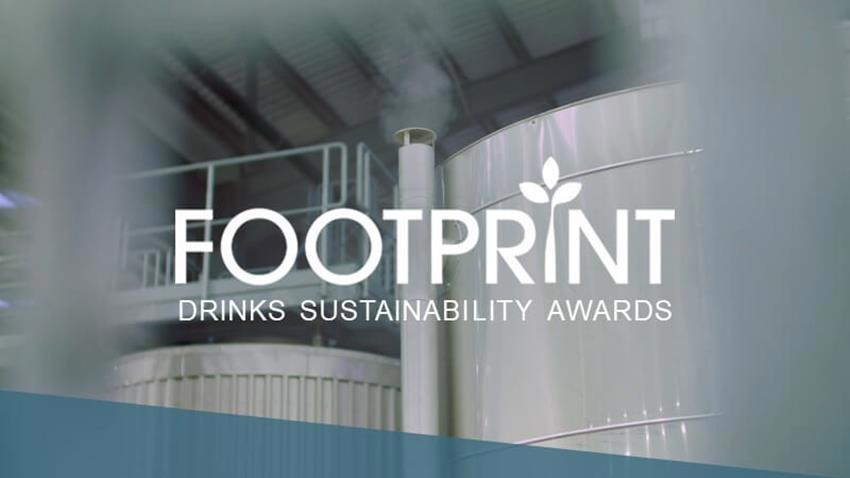
The shortlist has been announced for the inaugural Footprint Drinks Sustainability Awards in association with Matthew Clark, revealing the sustainability initiatives of the on-trade drinks sector’s leading responsible businesses.
Footprint Drinks Sustainability Awards is the only initiative to honour the achievements of companies in specific areas of sustainability and responsible business practice in the out of home sector and its supply chain. These awards are open to drinks businesses, suppliers and stakeholders of all sizes operating in the hospitality and out of home arena: brand, manufacturer, supply chain, distributor or operator.
The shortlisted companies for the award categories in alphabetical order are as follows:
Economic Sustainability Award
- Brentingby Gin
- Good Things Brewing Co
- Patrón Tequila
Sustainable Use of Water Award
- Adnams
- Greene King and Waterscan
- Marston’s
- Sipsmith
- WWF-UK and Coca-Cola Foundation
Sustainable Use of Raw Materials Award
- Black Cow Vodka
- The Garden Cider Company
- The Oxford Artisan Distillery
- Seven Bro7hers Brewery
- Toast Ale
Energy Efficiency Award
- Brentingby Gin
- Winterhalter
- Wye Valley Brewery
Innovations in Packaging Award
- Banrock Station
- Carlsberg UK
- Garçon Wines
- Lucozade Ribena Suntory
- Rebellion Brewery
Waste Prevention and Management Award
- Marston’s
- Patrón Tequila
- Reunion Ales
- Toast Ale
Sustainable Supplier Award
- Bibendum Wine
- European Malt Company
- Good Things Brewing Co.
- Karma Kola Co
- Radnor Hills
Stakeholder Engagement Award
- Bluestone Brewing Co
- Budweiser Brewing Group
- Hogs Back Brewery
- Warner’s Distillery
Social Impact & Diversity Award
- Brewgooder
- Coca-Cola European Partners
- The Driver’s Drinks Company
- Meiko UK
- Teapigs
Where more than 3 companies represented in any category of the shortlist, scores were tied
The Footprint Drinks Sustainability Awards Dinner will take place on Wednesday 11th September at Royal Institute of British Architects, 66 Portland Place W1B 1NT. Book tickets here.
Thank you to all Footprint Drinks Sustainability Awards sponsors and partners. Without your support putting on these awards would not be possible: Matthew Clark, British Beer & Pub Association, British Soft Drinks Association, Coca-Cola European Partners, Nescafé Azera, The Patrón Spirits Company, Society of Independent Brewers, UK Hospitality and WRAP.
Thanks also to the panel of judges: Michael Alexander, Roz Davis, Simon Galkoff, Richard Hayhoe, Julian Hunt, Steve Kearns, William Kendall, Kate Nicholls, David Phillips and Tim Warrillow.
About the awards
The Footprint Drinks Sustainability Awards is the barometer for sustainability and responsible business practice for the drinks industry in the out of home sector.
The soft drinks industry has been in the public spotlight of late with its impacts highlighted in both the sugar and plastic debates. The alcoholic drinks sector has, to date, remained under the sustainability radar, but this is about to change.
Few industries rely on raw materials, water, energy and packaging as much as those involved in the production of alcohol and soft drinks. Carbon outputs through manufacturing processes and distribution, not to mention the waste implications, are evidence of a global industry with a huge collective responsibility that is arguably more beholden to climate and environmental conditions than many others. Add to that the social sustainability agenda; the impact the drinks industry has on its constituents’ health, with the effects of excess alcohol and sugar consumption taking increasing chunks out of the NHS budget, along with other social aspects such as the living wage, gender, diversity and worker welfare.
Meanwhile, the consumer is increasingly well informed and, to the influential millennials particularly, business reputations can rise and fall over an approach to sustainable practice. What even five years ago was considered as foresighted innovation is today regarded as the bare minimum and it is no surprise that it is the most successful businesses that have embraced the concept, changed behaviour, and are now leading the way towards a more sustainable and responsible industry.
